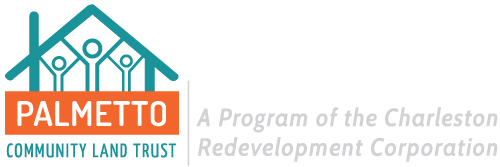Charleston County buying 18 vacant fixer-upper houses for $2.47M
By David Slade (dslade@postandcourier.com) | The Post and Courier | December 12, 2021
Charleston County’s troubled housing authority is selling 18 vacant homes because it couldn’t afford to maintain or repair them, and it needs the money.
Allowing neglected houses to sit vacant during an affordable housing crisis is a symptom of the Charleston County Housing and Redevelopment Authority’s ongoing financial problems. The authority also owns and manages the Charleston high-rise Joseph Floyd Manor, where elderly apartment tenants have contended with rats, bedbugs, mold and other problems.
Following a Post and Courier report about conditions there in 2020, the authority’s board fired CEO James Williams, and then Charleston County Council ousted board Chairman George Dawson.
After that, the authority got federal permission to sell 18 houses located in different communities across the county in order to raise money to pay off debt and fund improvements.
“When we got that call ... it was just like weight was lifted off our shoulders because now we know we’re getting some capital coming back in,” Sandino Moses, chairman of the authority’s board, told The Post and Courier in July.
To keep those 18 houses available as affordable housing, rather than being sold to the highest bidder, Charleston County has agreed to buy them for $2.47 million. That’s an average price of $137,222 per house.
“I can tell you the lion’s share (of the money) will be used at Joseph Floyd Manor,” said Franklin Scott, who became the county housing authority’s director in October. He was previously in charge of the North Charleston housing authority.
The deal is expected to be completed by the end of December. Next, the county plans to repair the houses at a cost that hasn’t been estimated.
All of the single-family homes have been vacant for more than a year, according to Charleston County. They are scattered across the county, from Johns Island to Ladson, but most have Charleston or North Charleston addresses.
Scott said the houses had become difficult for the authority to manage “due to the age of the properties, maintenance issues, labor issues, supply chain issues, and their dispersion across the county.”
The Charleston County government also doesn’t plan to own and manage the housing. Rather, the county plans to make the homes livable once again and then turn them over to housing groups to manage.
“The ultimate goal is to not keep those houses owned by the county, because we are not landlords,” Deputy Administrator Christine DuRant said at a Dec. 2 council meeting. “They could be allocated to a nonprofit that would manage them.”
The county has not decided which nonprofit or governmental groups will eventually manage the homes.
Council Chairman Teddie Pryor has suggested that the city housing authorities in Charleston and North Charleston — not the county housing authority — could play a role. And Councilman Brantley Moody was relieved to hear that the county doesn’t plan to own the houses long-term.
“I think this is a wonderful project, but we need to fix them up and get out of the business,” he said.
Both the purchase and the repairs would be paid for with federal funds that were part of the national pandemic recovery legislation. The deal with the housing authority serves two purposes, Councilwoman Anna Johnson said.
It’s an opportunity to keep some affordable housing from being lost, but “this is an opportunity for us to also help (the county housing authority) … to get funding to help with the repairs they need to get done.”
So, the county is taking federal money, giving it to the housing authority, getting 18 houses in exchange, and then using more federal money to prepare them for new occupants.
Charleston County does not fund or manage the county housing authority, but County Council does appoint its board members.

